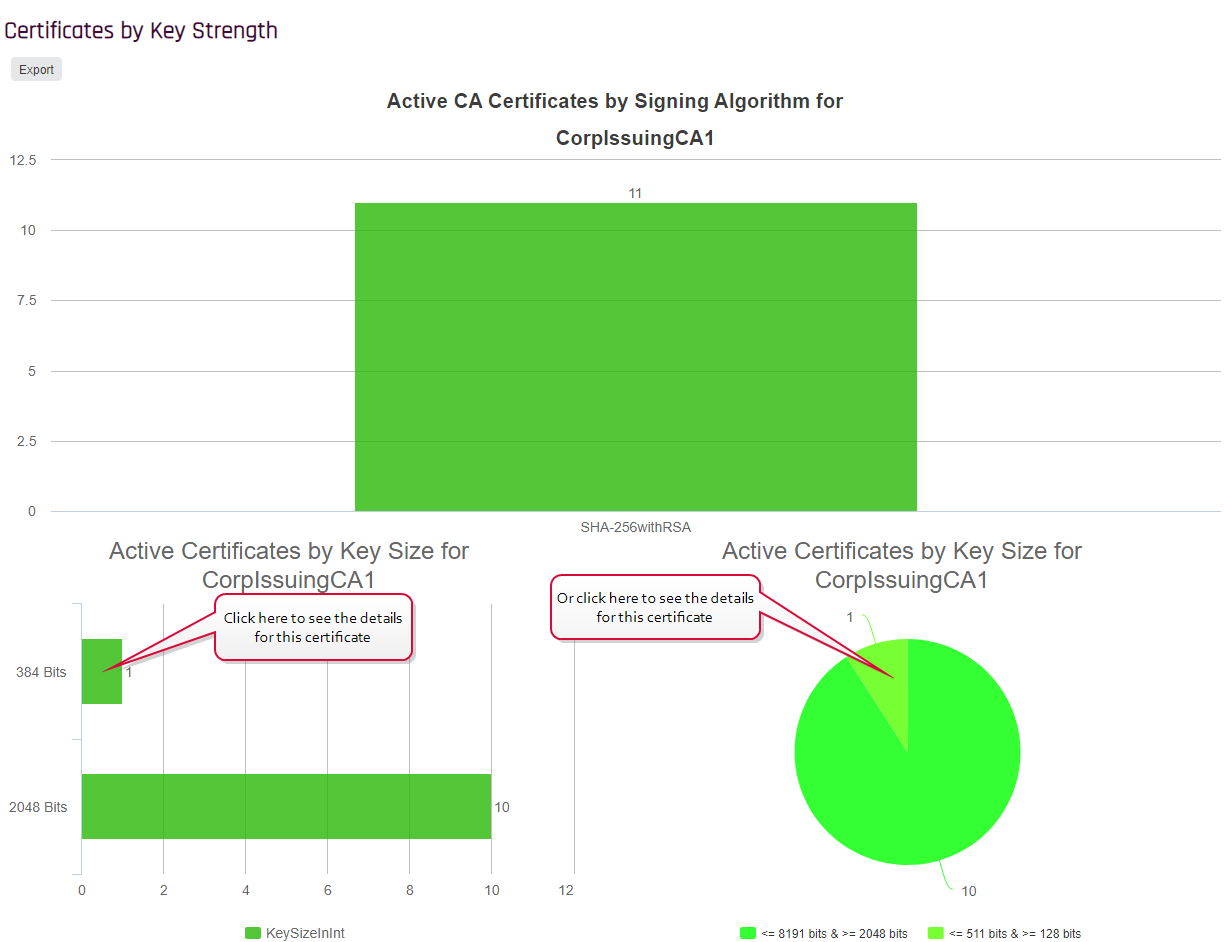Reports
Keyfactor Command uses the Logi Analytics Platform to provide a number of built-in reports based on certificate data in the Keyfactor Command database. These reports are available for viewing through the Management Portal, if you configured that option during the installation and configuration process (see Dashboard and Reports Tab in the Keyfactor Command Server Installation Guide). The reports can also be configured to save to a network path or deliver via email periodically, if desired.
As of Keyfactor Command version 10, Logi has been upgraded to v14 SP2 and a new Logi license is included in the application.
Once a report has been generated, you may be able to export it to either PDF, Excel, or CSV. The export file types available for each standard report are shown in Table 7: Chart of Available Exports per Standard Report.
Table 7: Chart of Available Exports per Standard Report
Most reports now have drill-down capability. Clicking on a chart or graph segment in a report will open the corresponding query grid in a new browser window or tab populated with the query as defined by the selected graph segment. For example, for the Certificates by Key Strength report, clicking on a bar or pie will take you to the Certificate Search page pre-populated with the query that corresponds to that bar or pie.
The following reports are available as part of the standard Keyfactor Command installation. Those marked with a (*) have been configured to Show in Navigator by default, so they appear on the Management Portal top menu under Reports. The Report Manager page shows all the available reports.
- Certificate Count by Template
- Certificate Count by User per Template
- Certificate Count Grouped by Single Metadata Field
- Certificate Issuance Trends with Metadata
- Certificates by Key Strength
- Certificates by Revoker
- Certificates by Type and Java Keystores
- Certificates Found at TLS/SSL Endpoints
- Certificates in Collection (*)
- Expiration Report (*)
- Expiration Report by days (*)
- Full Certificate Extract (*)
- Issued Certificates per Certificate Authority
- Monthly Executive Report
- PKI Status for Collection (*)
- Revoked Certificates in Certificate Stores
- SSH Key Usage Report
- SSH Keys by Age
- SSH Keys with Root Logon Access
- SSH Trusted Public Keys with No Known Private Keys
- Statistical Report (*)



